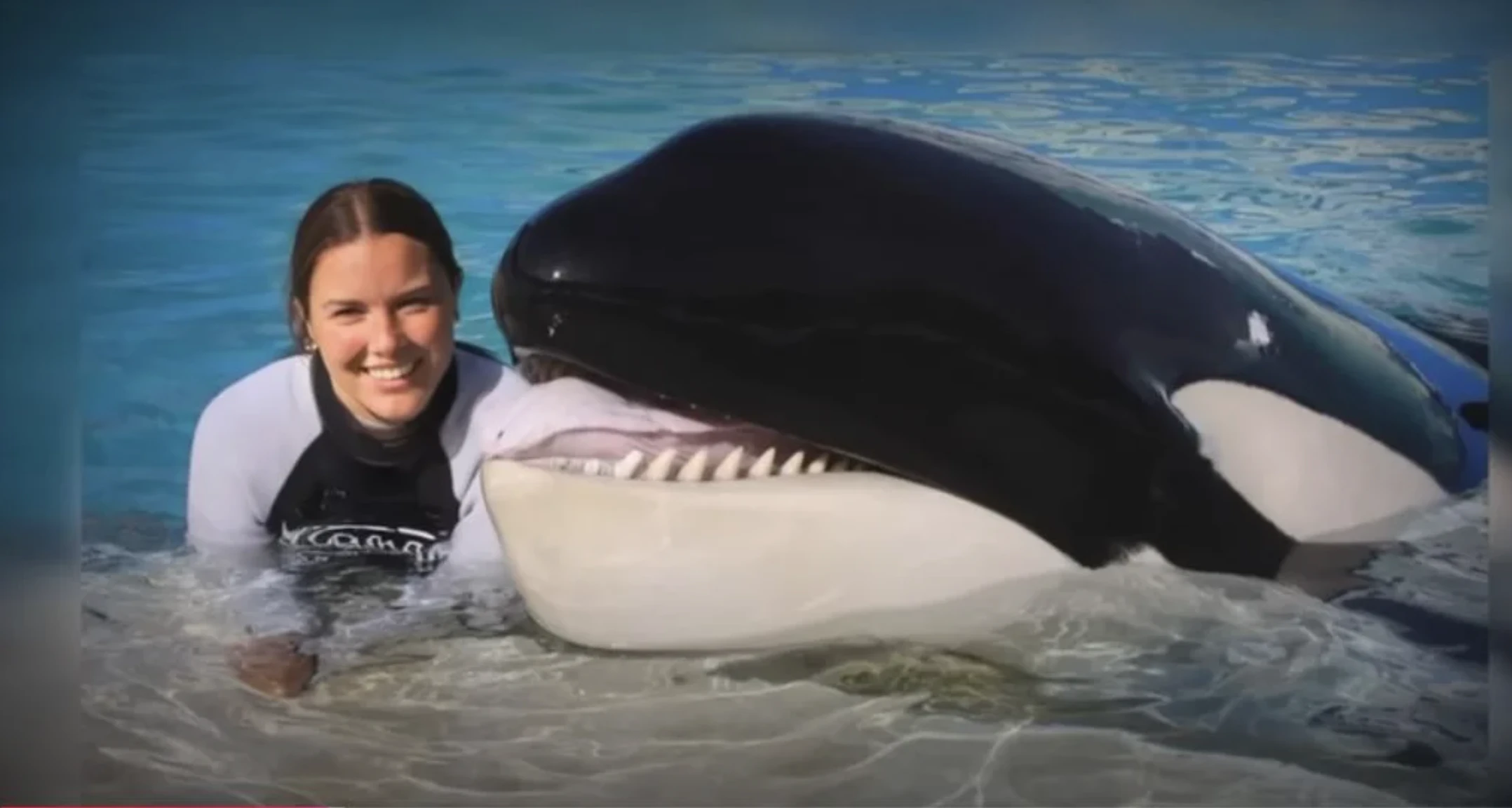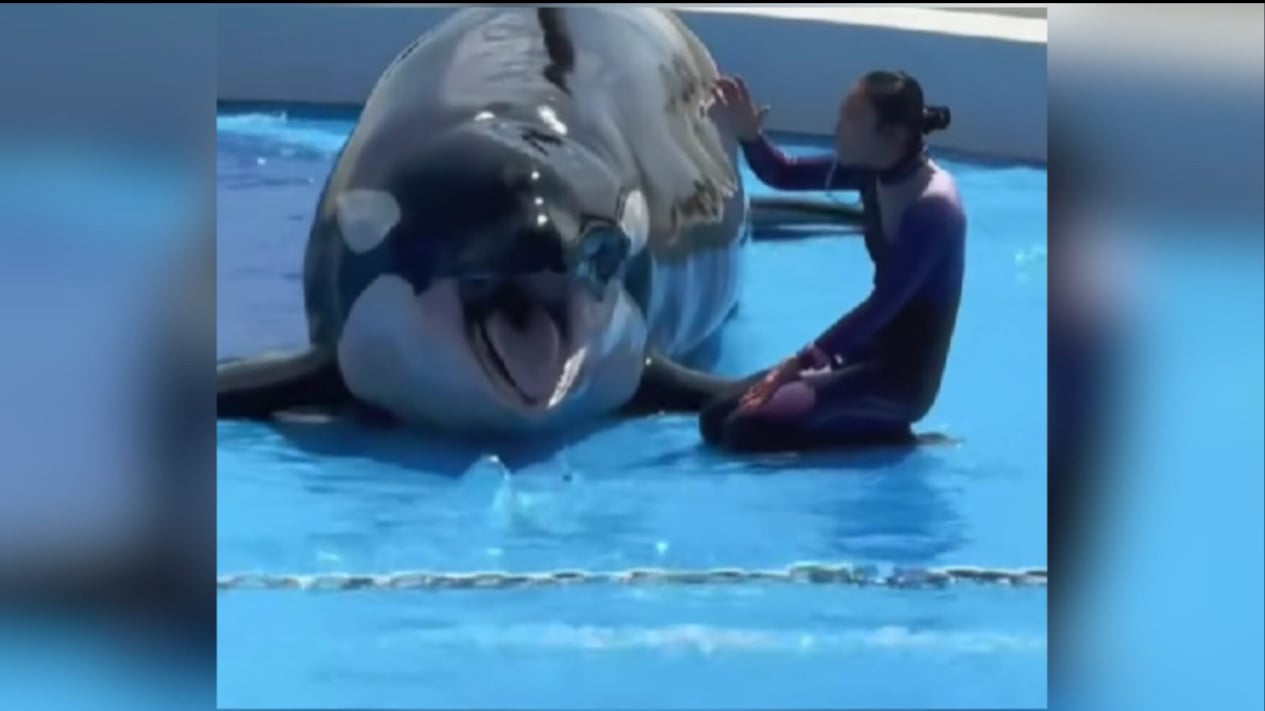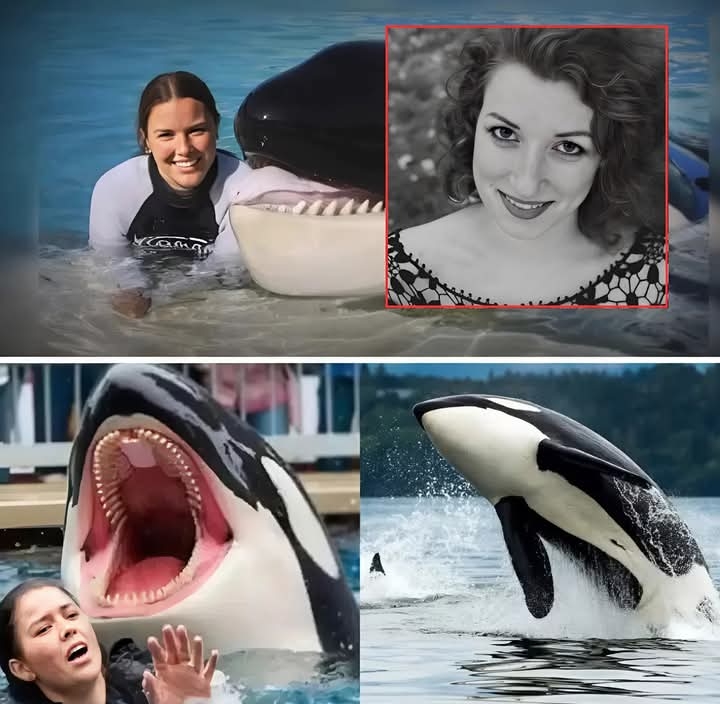K!ller whale attacks have become a serious problem at marine parks across the United States, causing concern among the whale-loving community. The most recent incident occurred at SeaWorld, causing an estimated $75,000 in damage in just a few minutes of chaos. Witnesses at the scene said the terrifying moment occurred when Jessica Radcliffe, a veteran trainer with more than 12 years of experience, was performing her final performance of the day, then… thanhthao
K!ller whale attacks have increasingly become a serious and growing problem at marine parks across the United States, sparking deep concern among animal lovers, marine life advocates, and frequent park visitors. Once celebrated for their intelligence and breathtaking performances, these apex predators are now at the center of heated debates about safety, ethics, and the human-animal relationship in captivity.
The most recent and alarming incident unfolded at SeaWorld, a name synonymous with orca shows, where chaos erupted in front of a stunned crowd. According to park officials, the sudden and violent behavior of one of their K!ller whales caused an estimated $75,000 in property damage in just a few minutes. Equipment was destroyed, safety barriers were compromised, and the performance was cut short without warning.

Eyewitness accounts paint a chilling picture of the moment. Jessica Radcliffe, a veteran trainer with over 12 years of hands-on experience working with marine mammals, was in the middle of her final performance of the day. The orca, which had previously shown no signs of distress or aggression, suddenly shifted in demeanor. Within seconds, the massive creature surged toward the performance platform, colliding with equipment and causing a wave of panic among both staff and audience members
Audience members described seeing Jessica remain remarkably composed under intense pressure. She quickly signaled to her fellow trainers, initiating a safety protocol that moved guests away from the splash zone and secured the area. Despite her professionalism, the raw fear in her eyes was unmistakable. “It was like watching years of trust vanish in an instant,” one witness commented, noting that the orca’s unpredictability shocked even the most seasoned spectators.

In the aftermath of the incident, SeaWorld temporarily suspended all K!ller whale performances pending a thorough investigation. Marine biologists and animal behaviorists have been brought in to assess the whale’s condition, its recent environment, and possible stress factors. Early theories range from environmental changes in the tank to subtle health issues, but nothing has been confirmed.
The event has reignited a national conversation on the ethics of keeping such large, intelligent predators in captivity for entertainment purposes. Animal rights organizations are pointing to this as yet another example of why orca shows should be permanently retired. Meanwhile, some supporters of marine parks argue that such incidents are rare and that K!ller whales in captivity play an important role in education and conservation awareness.

For Jessica Radcliffe, the experience was a sobering reminder of the unpredictability of working with wild animals, even those she has trained for years. Her quick thinking likely prevented injuries and more extensive damage, earning her praise from colleagues and park visitors alike.
As the investigation continues, SeaWorld faces not only the costly repairs but also the mounting public scrutiny. Whether this incident becomes a turning point for the future of orca shows in the United States remains to be seen, but one thing is certain: the spectacle of these majestic animals now comes with a heightened awareness of the risks involved




